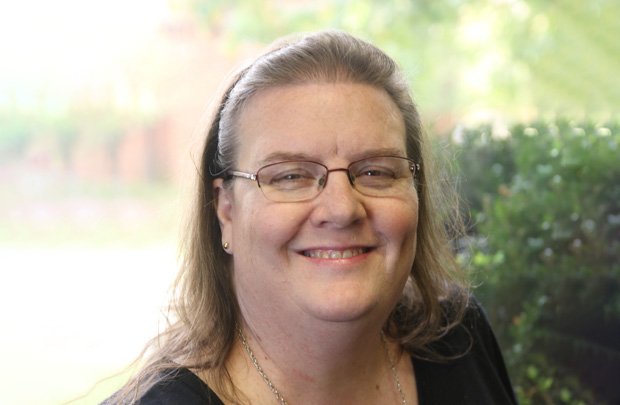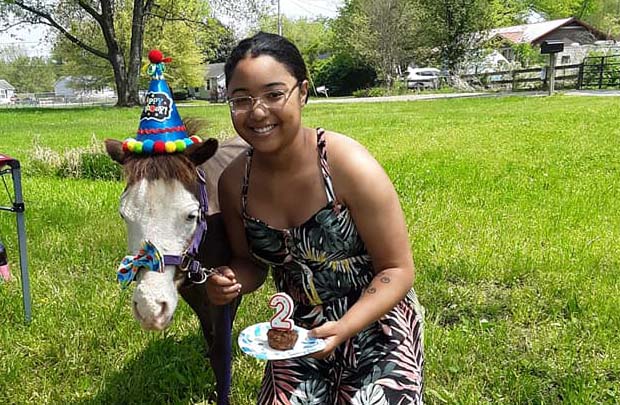
Mary Corwin is a social worker with a focus in foster care and adoption in Nashville, TN. A mother that she worked with asked that we feature Mary as an Outstanding Caseworker, writing:
“Mary assisted us with the adoption of our second son and oldest daughter, both older children in the state foster system. Later, she was our caseworker as we fostered a sibling set. Mary has listened to me cry and celebrated all the great milestones we’ve had with our children. She is always accessible. She attended graduations, weddings, and baby showers many years after first placing our children with us. She is dear to our family.”
Do you have this kind of relationship with many of the families you work with?
The son that this mother is writing about, John, was the first foster child that I worked with 23 years ago! They are a special and wonderful family who have a piece of my heart.
But in general, I do have strong relationships with all of the families I work with—birth parents, foster parents, and adoptive families. Which can be a delicate balance. I was so close with two different birth mothers that I was in the delivery room when they each gave birth to one of their children—both are children that their birth mother ultimately relinquished rights to. But I think our relationship made it easier for each of them to make the decision that adoption was the best option for her child.
What attracted you to this work?
Both of my parents were social workers without the degree. They were amazing role models to me, because they showed me the importance of caring for people. My dad had a 90-year-old woman he took to the grocery store every Saturday and then sat with. He and my mom were always doing things like visiting people in hospital and taking food to families.
I learned the value of helping people from my parents, but it took me a while to decide to make it a career. After high school, I deferred going to college and got a business-type job that was not very enjoyable and did not make me feel that I was making a difference in the big picture. When I was ready to go to college seven years later, social work was a natural fit.
“In the last 23 years, I’ve seen kids who’ve been through unspeakable things become healthy adults living lives that blow me away!”
What’s kept you working with families for 20-plus years?
I never thought being a social worker would be easy, and there are days that it is harder than I’d ever imagined. But every day is worth it, whether it’s hard or not. I get to be part of seeing families reunify and children be adopted into healthy families, like the one who nominated me. In the last 23 years, I’ve seen kids who’ve been through unspeakable things become healthy adults living lives that blow me away!
I also have a personal commitment. I started fostering back in 2002 and fostered 18 children before adopting my daughter in 2007. When she came into my life, she was 21-months old and was supposed to be with me for two weeks. “Don’t get too attached,” her social worker said! That little girl is now 18 years old and a freshman in college.

Did fostering and adopting give you insights into the children and families you work with?
Adopting my daughter made me able to empathize with adoptive families who are struggling with the wait and to relate to the fear and confusion that any parent feels—adoptive or not.
It also gave me insight into the effects of trauma—even on very young children—and on how children can heal. Here’s one example: When my daughter was a toddler, she was terrified of police officers. It made me sad to think of what she must have seen to make her so afraid. We worked really hard to overcome that fear. By the time she was in middle school she had conquered that fear. For the last several years, she has dressed up like an elf at Christmas and taken cookies to the police and firefighters! It’s been the sweetest victory to see that change and others like them.
Of course, the effects of trauma don’t disappear. There will always be things for us to work through. Right now, it’s the transition to college!
In addition to understanding the effects of trauma, what makes a good foster or adoptive parent?
I wish kids came with a manual, especially kids from foster care. There’s so much trauma, hurt, confusion, and vulnerability on their part. And of course, each child’s situation is unique. But in general, this is the advice that I often share with people who are considering fostering and adopting:
- Be committed! Your “yes” is a yes—not a maybe. Parenting them is not always going to be easy. You are taking on a difficult role and you cannot waver in your commitment.
- Don’t be afraid to get attached! I hear people say, as my daughter’s worker did to me: “Don’t get attached.” But even if it’s only two weeks, every child deserves someone who loves them unconditionally.
- Don’t do it for the accolades or the thanks. They may not come. Do it for the child, and because it’s the right thing to do.
- Don’t let the hard times overshadow the good that you’re doing.
- Remember that fostering is meant to be temporary. It may end up being an adoptive situation, but don’t go into it planning for that outcome.
- Know that birth parent relationships come with the child. That connection is not going away. For the sake of the child, you’ll have to work to maintain and build those relationships when it’s possible.